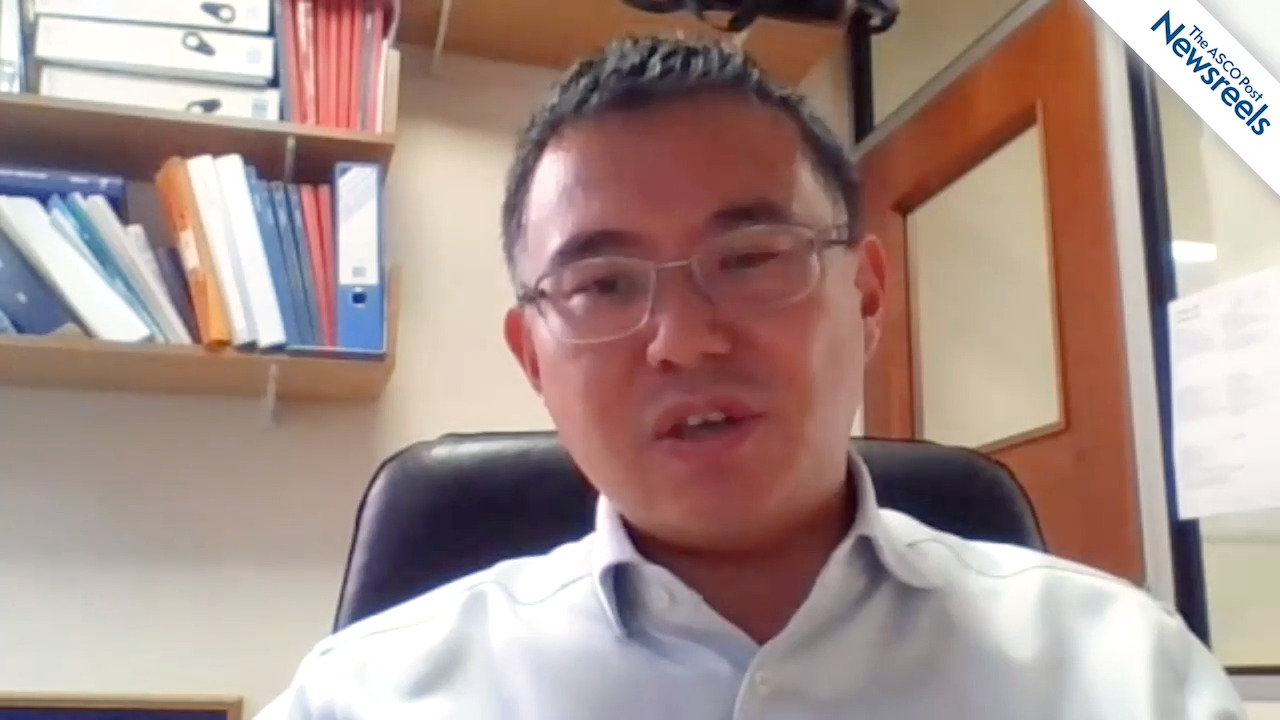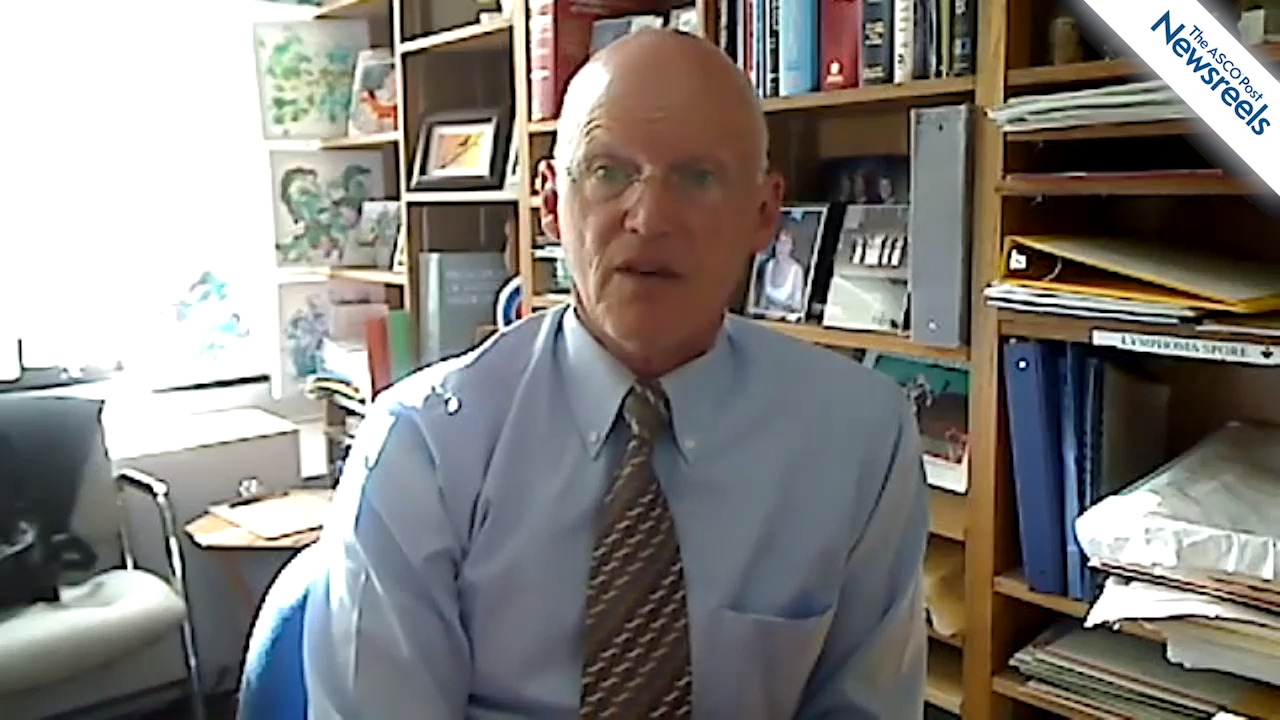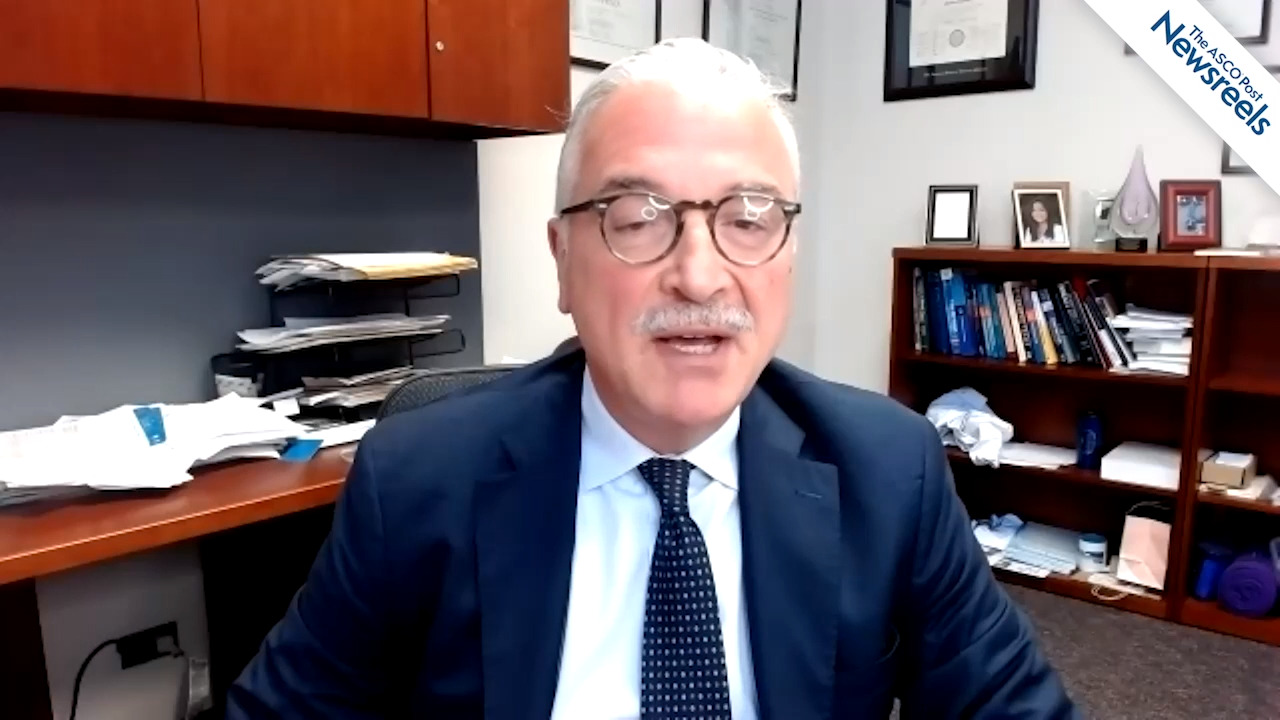Byoung Chul Cho, MD, PhD, on NSCLC: Amivantamab Plus Lazertinib for Treatment of Relapsed Disease
2021 ASCO Annual Meeting
Byoung Chul Cho, MD, PhD, of the Yonsei Cancer Center, discusses study results that showed treatment with the EGFR-MET bispecific antibody amivantamab plus the EGFR inhibitor lazertinib yielded responses in 36% of chemotherapy-naive patients with non–small cell lung cancer whose disease progressed on osimertinib. Genetic biomarkers may be able to identify patients most likely to benefit from the combination regimen (Abstract 9006).
The ASCO Post Staff
Michael J. Morris, MD, of Memorial Sloan Kettering Cancer Center, discusses phase III results of the VISION study, which showed that lutetium-177–PSMA-617 (LuPSMA), a targeted radioligand therapy, plus standard-of-care treatment improves radiographic progression-free survival and extends overall survival compared with standard of care alone in men with metastatic castration-resistant prostate cancer (Abstract LBA4).
The ASCO Post Staff
Ian Chau, MD, of Royal Marsden NHS Foundation Trust, discusses first results of the CheckMate 648 study, which showed that nivolumab plus chemotherapy and nivolumab plus ipilimumab both demonstrated superior overall survival vs chemotherapy alone in patients with advanced esophageal squamous cell carcinoma. These regimens may represent potential new first-line treatment options (Abstract 4001).
The ASCO Post Staff
Paolo Ghia, MD, PhD, of the Università Vita-Salute San Raffaele, discusses phase II results from the CAPTIVATE study, which examined ibrutinib plus venetoclax as a fixed-duration first-line treatment in patients with chronic lymphocytic leukemia/small lymphocytic lymphoma (Abstract 7501).
The ASCO Post Staff
Brian K. Link, MD, of the University of Iowa Carver College of Medicine, reviews three abstracts on state-of-the-art therapies for mantle cell lymphoma: bendamustine, rituximab, lenalidomide and bortezomib; treatment patterns and outcomes for previously untreated patients; and venetoclax, lenalidomide, and rituximab in newly diagnosed disease (Abstracts 7503, 7504, and 7505).
The ASCO Post Staff
Massimo Cristofanilli, MD, of the Feinberg School of Medicine at Northwestern University, discusses updated overall survival data from the phase III PALOMA-3 trial of palbociclib plus fulvestrant in women with hormone receptor–positive, HER2-negative advanced breast cancer (Abstract 1000).





